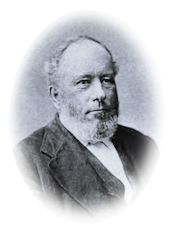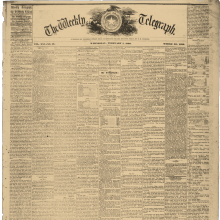March 25, 1863, The New York Herald
We have some important intelligence from the Yazoo expedition today. It comes by way of St. Louis, and is to the effect that the steamer Dilligent, with the Eighth Missouri, had succeeded in entering Yazoo rover above Haines’ Bluff. Her course was through Cypress Bayou, which debouches into the Yazoo opposite Johnson’s plantation, and thence through Steele’s Bayou into the Sunflower, which empties into the Yazoo twenty miles above Haines’ Bluff. The Diligent was accompanied by a light gunboat. As soon as it was found possible to get through four iron-clads followed.
If this be so our forces are now in the rear of Yazoo City, and by reducing that post and Fort Pemberton, may place Vicksburg in our hands. It was rumored that Haines’ Bluff was evacuated, and that the Eighth Missouri had gone up to garrison the place. Our expeditionary correspondence from that quarter is full of interesting details relative to the movements of the fleet in its progress. An excellent map illustrates the locality in which the expedition operated.
Despatches from Cincinnati, dated yesterday, state that within the last four days the rebels have made several reconnoissances, causing considerable picket skirmishing along the whole front of the Union army. They do not appear anxious, however, to bring on a general engagement. Reliable information from the South represents that the evacuation of Vicksburg is being advocated for strategic purposes, prominent rebels declaring that by withdrawing their troops from Vicksburg and massing them in Middle Tennessee they can oblige General Rosecrans to repeat the movements of General Buell last year.
The capture of Mount Sterling, Ky., by the rebels is confirmed, but on the other hand we learn that Colonel Garrard attacked the rebel forces under Colonel Clarke on Monday, near Mount Sterling, driving them towards Owensville.
Nothing new has occurred in front of Charleston, nor is any attack expected there until the period of high tides arrives, with the equinoctial season, which is evidently just setting in.
The Paris correspondent of the London News, writing on the 6th of March, says:– “The news of the issue of letters of marque by Mr. Lincoln has caused a great impression here. It is also noticed as significant that the Moniteur has copied an article from an English paper advocating the prompt recognition of the South.”









